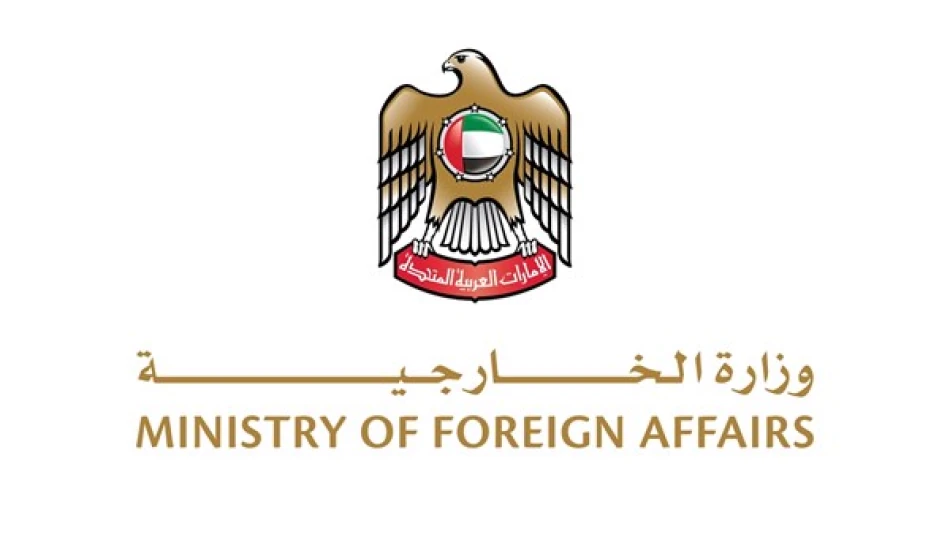
UAE Welcomes Ceasefire in Sweida, Condemns Israeli Escalation, Affirms Support for Syria's Stability and Territorial Integrity
UAE Condemns Israeli Strikes on Syria While Welcoming Ceasefire in Southern Province
The United Arab Emirates has taken a firm diplomatic stance against Israeli airstrikes in southern Syria while simultaneously welcoming a ceasefire agreement in Sweida province. The dual response reflects the UAE's broader strategy of regional stabilization and its evolving relationship with Syria, marking a significant moment in Middle Eastern diplomatic realignments.
Strong Condemnation of Israeli Military Action
The UAE's Foreign Ministry issued a sharp rebuke of Israeli airstrikes in southern Syria, describing the escalation as "dangerous" and condemning what it termed violations of Syrian sovereignty. This represents one of the UAE's most direct criticisms of Israeli military operations in recent months, signaling a potential shift in the Gulf state's diplomatic approach to regional conflicts.
The condemnation comes at a time when Israel has intensified its military operations across multiple fronts, including regular strikes on Syrian territory targeting Iranian-backed forces and weapons transfers. The UAE's vocal opposition suggests growing regional concern about the broader implications of continued military escalation.
Ceasefire Welcome Amid Regional Tensions
While condemning the airstrikes, the UAE welcomed the ceasefire announcement in Sweida province, emphasizing the importance of civilian protection and de-escalation. Sweida, predominantly inhabited by the Druze minority, has experienced periodic unrest and has been a focal point of anti-government protests in recent years.
The UAE's support for the ceasefire reflects its broader diplomatic strategy of promoting stability while gradually re-engaging with the Syrian government. This approach contrasts with the positions of other regional powers and demonstrates the UAE's pragmatic foreign policy calculations.
Strategic Implications for Regional Diplomacy
UAE's Syria Policy Evolution
The statement reinforces the UAE's commitment to Syrian territorial integrity and sovereignty, marking a continuation of Abu Dhabi's gradual rapprochement with Damascus. This policy shift began in earnest around 2018 when the UAE reopened its embassy in Damascus, breaking ranks with other Arab League members.
The UAE's position reflects a calculated bet that engaging with the Syrian government, rather than isolating it, serves long-term regional stability interests. This approach has put the UAE at odds with some Western allies but aligns with its broader strategy of maintaining relationships across the region's complex political landscape.
Balancing Act with Israel
The condemnation of Israeli strikes presents a delicate balancing act for the UAE, which normalized relations with Israel through the Abraham Accords in 2020. The statement suggests that normalization does not extend to unconditional support for Israeli military operations, particularly those affecting regional stability.
This nuanced position may reflect domestic and regional pressures, as well as the UAE's desire to maintain credibility as a regional mediator. The approach demonstrates how normalization agreements can coexist with policy disagreements on specific military actions.
Broader Regional Context
The UAE's statement comes amid heightened tensions across the region, with multiple conflicts creating a complex web of competing interests. The country's emphasis on peaceful coexistence and development reflects its economic priorities and desire to avoid prolonged regional instability that could threaten its business-friendly environment.
The diplomatic positioning also signals to other regional actors, including Iran and Turkey, that the UAE views Syrian sovereignty as a red line, regardless of the actors involved in violations. This consistent principle-based approach may enhance the UAE's credibility as a potential mediator in future regional disputes.
Most Viewed News

 Layla Al Mansoori
Layla Al Mansoori






